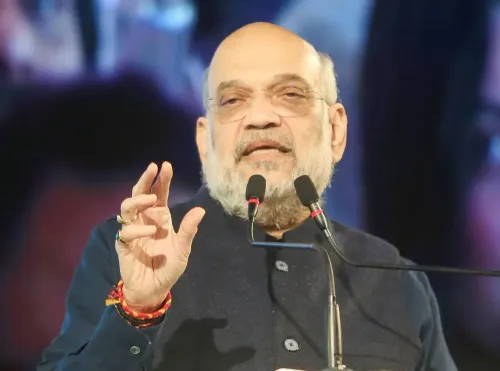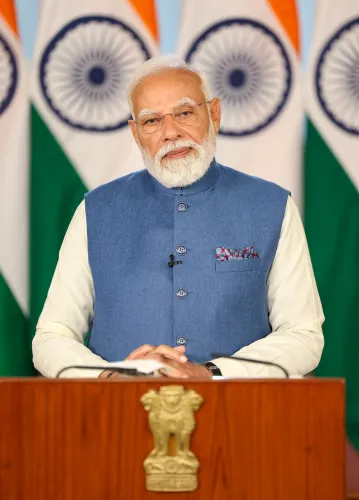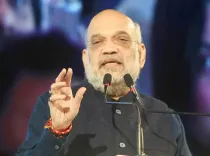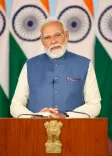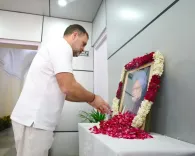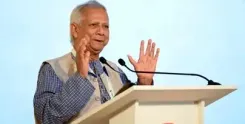Are Political Parties Betraying Muslims by Ignoring Their Voices?
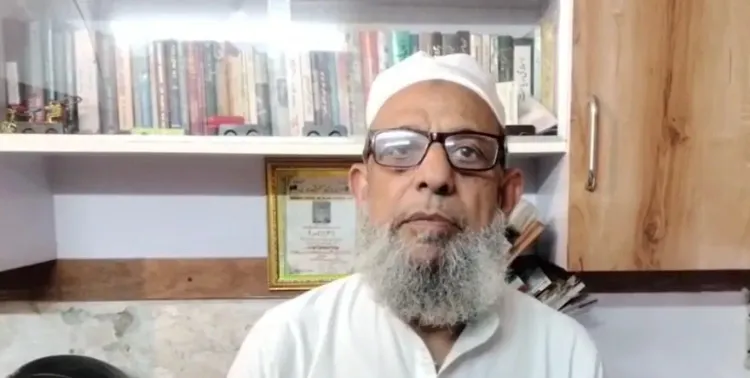
Synopsis
Key Takeaways
- Political parties seek Muslim votes but often exclude them from power.
- True representation for Muslims is lacking in government.
- Community leaders must prioritize faith over exploitation.
- Calls for reform highlight the urgency of inclusive policies.
- The political landscape is shifting as elections approach.
New Delhi, July 3 (NationPress) In a harsh critique of the BSP, SP, and Congress party, particularly targeting the Leader of the Opposition (LoP) in the Lok Sabha, Rahul Gandhi, the National Vice President of the Indian Union Muslim League (IUML), Maulana Syed Kausar Hayat, accused them of mere tokenism and betraying the Muslim community.
Speaking to IANS from Moradabad, Hayat asserted that successive administrations—Congress, SP, or BSP—have only sought Muslim votes while systematically excluding them from positions of power and influence.
“Muslims have never received genuine representation—merely serving as symbolic figures like Maulana Azad in 1947. This pattern continues today,” Hayat remarked, questioning why LoP Gandhi was silent during the discussion of the Waqf Bill in Parliament.
“He didn’t even show up. Muslim MPs are merely ornamental, hoping to snag ministerial scraps in the future,” he stated.
“The roots of today’s communal tensions were planted by previous administrations that gradually marginalized Muslims from jobs in various sectors, including courts and police. The outcome? Numerous departments now boast zero Muslim representation,” he claimed.
“In regions governed by the BJP, the police and administrative bodies function as extensions of the ruling party and the religious groups backing it. They are more attuned to ideological principles than to the Constitution,” Hayat elaborated.
He called for proportional representation for Muslims in governmental bodies, insisting that their actual population exceeds 30%, contrary to official statistics.
“If Muslims had been granted equitable inclusion—reservation or not—India wouldn’t be at this boiling point,” he emphasized.
Critiquing all major political factions, including the SP and BSP, Hayat stated that none genuinely address Muslim concerns. “They desire our votes but disregard our voices. This is the core of the unrest in the nation,” he pointed out.
Hayat encouraged Muslims to put their faith in God rather than leaders who exploit them. “The so-called nationalists among Muslims have always put their trust in figures like Gandhi, Nehru, Charan Singh, and now Akhilesh Yadav or Mayawati—but never in Allah. That’s the real dilemma,” he observed.
As political tensions escalate ahead of forthcoming elections in Bihar and the 2026 Assembly elections in Kerala, Tamil Nadu, Assam, and West Bengal, Hayat’s remarks shine a light on the growing sense of disenchantment among Muslims across political lines.


